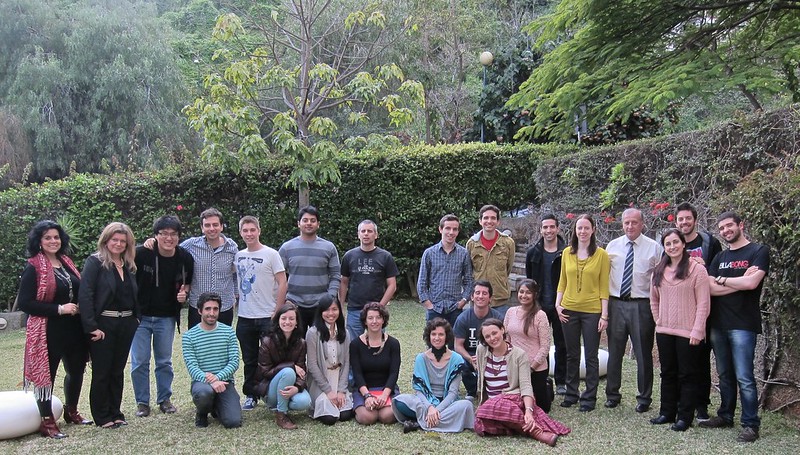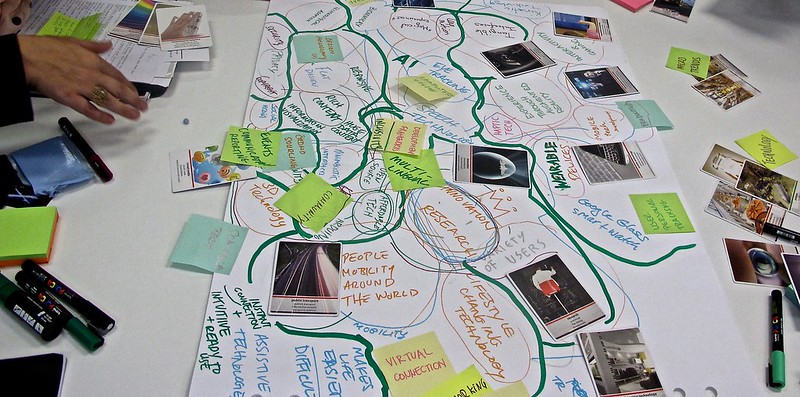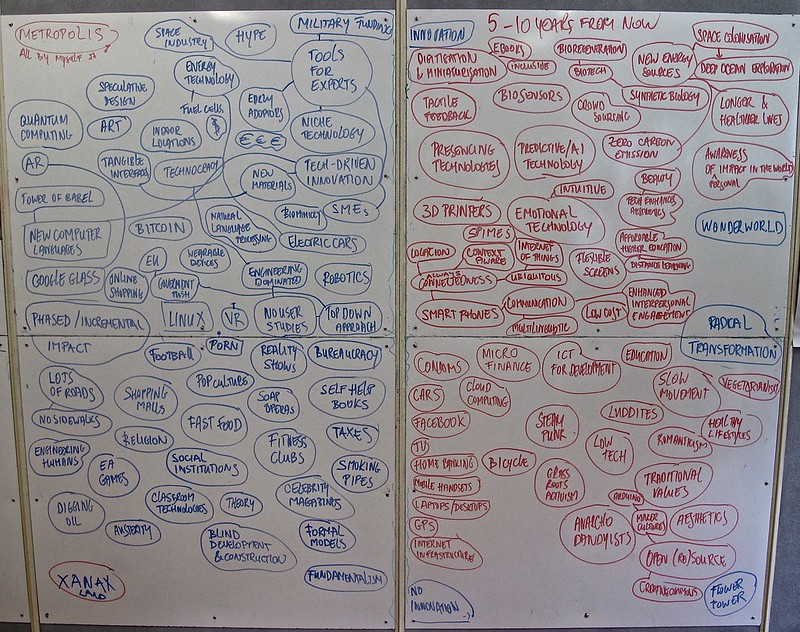M-ITI Capstone Kickoff
Two-day scenario development and testing workshop for 22 M-ITI (MHCI and MET) students and capstone project sponsors, 20140120-22. The MHCI Project course is an 8-month long capstone project for the Masters of HCI program and integrates everything the students have learned in their coursework into one “end-to-end” experience. Students work in interdisciplinary teams with an industry sponsor to produce a working prototype that serves as a proof of concept of a novel service or product idea. The scenarios developed during the workshop are meant to provide a broad context for all capstone projects.
The key issues of the students and sponsors revolved around providing meaningful experiences for their users and clients, so that they can have a lasting influence on people's lives and work. Furthermore, they were keen to find ways to have productive and enjoyable collaboration with everyone involved. The core question that emerged from these issues was the following:
How can projects combining creativity and technology become transformative experiences for our users?
Key factors
After a session of dialogues and reporting, the group came up with many factors that would influence the success of their projects, which can be summarised as the following success criteria:
- Connection with users: Meeting expectations, understanding their needs, providing enjoyment, inspiration, opportunities and inciting positive behaviour. The projects must be sensitive to people's emotions and their wider context.
- Innovation: The projects should be innovative and high risk, in terms of technology (used and developed), experience and process. The final result should embrace simplicity and out of the box thinking, while being sufficiently captivating for their users.
- Open design process: The co-creation of the projects should accommodate multiple perspectives and different possible scenarios. The process should be flexible enough to allow early failure through prototyping and testing.
- Team Dynamics: The teams should be diverse and comprised of committed students and sponsors where everyone's contributions are welcome. The communication should be based on trust and mutual inspiration, conducted through listening, observing then interacting.
- Feasibility: The projects should be realistic. Their technological components should be appropriate to the tasks at hand and robust enough for the context where they would be used. The process should adhere to a feasible budget and schedule. The value of the project should be checked against market validation.
- Resilience: The concept, process and result must be resilient enough to withstand conflict situations and external/internal crises. Furthermore they should be able to survive beyond the end date of the Capstone projects.
Drivers of change
Social/Political
- Crisis (economy, education) encouraging behavioural change
- Increase in social media
- New beginnings (in many aspects of life)
- Migration and a cross-cultural melting pot
- Inclusion (usability, accessibility)
- Healthy lifestyles
- Aging
- Peace and peace-keeping
- Growing gap between rich and poor
- Traditional values
- Digital crime
- E-government
Technological
- Lifestyle change through technology
- Intuitive and inclusive technologies
- Biomimicry
- Cloud computing
- Instant connectedness and mobility
- AI technologies
- Crowdsourcing
- Wearables
- Open source technologies
- Security & tracking
- Mobile technologies
- Flat design
- Information visualisation
- Interactivity and gaming
- Big data
- Responsive technologies
- Augmented reality
- Digital integration
Environmental/Economic
- Sustainability (emerging markets)
- RRR
- Green energy
- Water security
- Sharing economies
- Austerity
- Climate change risks (and prevention)
- New business models
- Green tax
- New ways to export
Critical Uncertainties
Most important and uncertain factors and drivers
- Technology for lifestyle change
- Innovation
- Connection with users
- Feasibility
- Intuitive and inclusive technologies
- Team dynamics
- Information visualisation
Scenarios
From these critical uncertainties two scenario axes emerged:
- phased/incremental impact ↔ radical lifestyle transformation
- high technological innovation ↔ low technological innovation
Scenarios developed:
More photos on Flickr
Debrief
Student presentations of the process and the outcomes:
- Airport Group (pdf)
- Wow!Systems Group (pdf)
- Electricity Museum Group (pptx)
- Outsystems Group (prezi, NOTE: does now work in firefox)
FoAM capstones workshop debrief of the process
Back to scenarios


